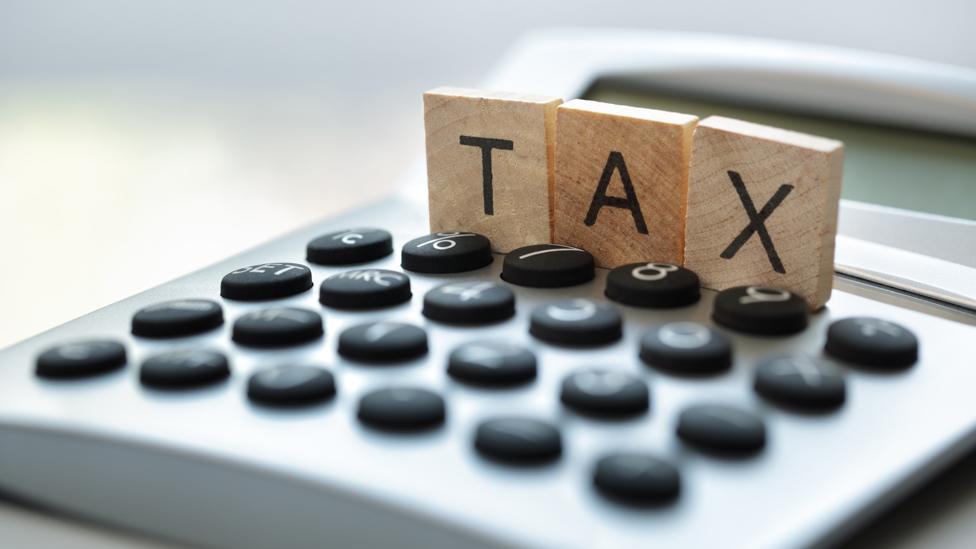PM urged to drop repayment charges over tax loophole schemes
- Published

Seventy-six MPs have urged the government to drop a tax policy known as the loan charge, saying it will cause thousands of bankruptcies.
The charge - brought in to close a tax loophole - has left many freelance workers with large bills.
It seeks to recover money unpaid to the Treasury because of specially set-up loans, dating back to 2010.
In a letter to the prime minister and the chancellor, the MPs say those affected are victims of "mis-selling".
Boris Johnson said earlier this week that he was "acutely aware of the pain" of those who had entered into the loan schemes
They had been "misguided" but the Treasury was "right" to ask for the money, he added.
Responding to the letter, an HM Revenue and Customs spokesperson said: "We must uphold the fundamental principle that individuals are responsible for their own tax affairs, and it is right that we continue to tackle these type of avoidance schemes as they deprive public services of vital funding.
"We encourage any customers who are worried about paying their loan charge liability to please contact us and we will be able to help them."
In 1999, the then Labour government introduced a tax law which sought to class many self-employed freelance workers as employers, meaning they would have to pay National Insurance.
Subsequently, thousands signed up to schemes, promoted as being legal by lawyers and accountants, allowing them to avoid paying National Insurance.
Loan charge - retrospective tax bills for freelancers
This usually involved the freelancers paying money to offshore companies, who loaned it back to them without expecting to be repaid.
The government announced in 2016 it was closing this loophole and later demanded retrospective payment.
The loan charge, in effect, adds up all such loans made since 2010 and taxes them as income. It has landed many workers with large bills.
'Mental health impact'
In their letter, the MPs say that "if the government does not act to instruct HM [Revenue and Customs] to change course", they are "fearful of what the consequences will be when HMRC enforce the loan charge".
They add that they are "concerned about the mental health impact, with the fact that there have been suicides of people facing the loan charge previously".
And they urge the prime minister and Chancellor Rishi Sunak to "finally accept that the loan charge is not fair" and warn that it will "inevitably" lead to thousands of bankruptcies.
The Loan Charge Action Group says someone who was earning more than £50,000 a year while using the schemes could face a bill for more than £500,000, and even people on more modest incomes face charges in excess of £10,000.
HMRC has estimated that 50,000 individuals, and around 10,000 companies used the loan schemes.
The government has described them as "artificial tax-avoidance schemes", insisting that the "amounts paid were always taxable under the law at the time".
An HMRC spokesperson said: "The loan charge was introduced to ensure those who used disguised remuneration tax-avoidance schemes paid their fair share of income tax and national insurance contributions.
"We must uphold the fundamental principle that individuals are responsible for their own tax affairs, and it is right that we continue to tackle these types of avoidance schemes as they deprive public services of vital funding."